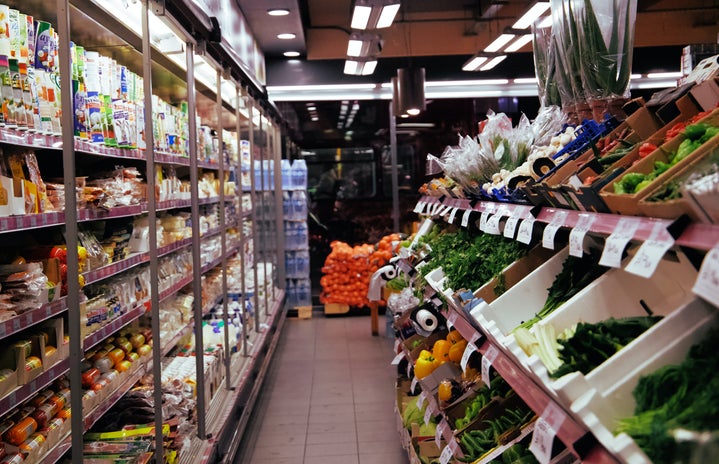College students deal with a lot in their day to day lives, and unfortunately, food insecurity is one of them. Usually when people think of those dealing with food insecurity, they think of adolescence and adults living in low-income areas.
The narrative concerning those experiencing food insecurity continuously ignores college students, which is a group that is already experiencing backlash from older generation for their ideas stemming from the education they are obtaining. These students are seeking change in the world, but the world is avoiding the wellbeing of college students.
College students experience the lack of food for various reasons. A few reasons may be because they are unable to afford a meal plan at their university and it is not required, their family as a whole is experiencing food insecurity, or the student is unable to buy food because of the extreme cost of rent and college expenses.
According to Forbes Advisor, a survey conducted by Temple University’s Hope Center for College in 2019 found that out of 167,000 college students, 39% of them had experience food insecurity in the last 30 days.
It is necessary that students, and all people, have access to food in order to maintain a healthy diet and to stay alive. Many students are forced to work various jobs in order to pay for the schooling, rent, and food. Unfortunately, the overworking of college students can lead to poor grades, the lack self-care, and the decline of one’s mental health.
Even though this problem plagues numerous college students, there are not many people working to create programs to assist these students. These students are not being helped because of the lack of awareness on the problem, not out of maliciousness of those in the communities around them.
At Winthrop University, students and professors have found that numerous students on campus were dealing with food insecurity. As a result of their new awareness, the nutrition club began a produce stand that allows students and those in the Rock Hill community to get free produce.
In addition to the produce stand, there is a food pantry on the Winthrop University’s campus. Students, faculty, and staff, and those in the community are able to donate to the food pantry. They take items such as canned food items and noodles. In addition to food, people also donate toilet paper, feminine products, soap, and toothpaste, because some students struggle to buy these necessary items. If students need food from the pantry, it is a “no questions asked” situation.
As a result of those who acknowledged the food insecurity problem on Winthrop’s campus, less students have to worry about their next meal or having toothpaste to brush their teeth. Promoting this to those at Winthrop and in the Rock Hill community is vital for the food pantry to continue to serve students.
But what about students at other colleges who do not have access to a place of free food with no questions asked? The number one thing that must happen it to continue to educate people on this problem that so many students are experiencing. Then, we need to begin advocating for food pantries on campus, and finding faculty, local businesses, and alumni who are willing to donate either items or money.
Moving forward, college students need to talk about the problems they are having with getting the food that is necessary for their health. If students are open about their problems, professors, faculty, and staff, and other students will become more aware of the epidemic on their school’s campus and may begin starting their own food pantry.
College is supposed to be a time where young adults are learning more about themselves, make decisions, and gain an education, and not a time where students are worrying about their next meal. Since college students are adamant about change, they should begin looking at the food insecurity problem on their campus.


